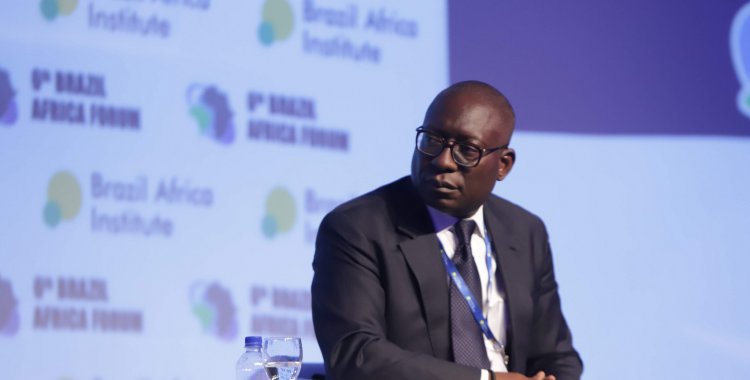"We are thinking of a 'think-tank' that could encompass the entire Portuguese-speaking ecosystem and would work hard with the Community of Portuguese-Speaking Countries (CPLP) for greater dynamism" of these countries in the African Continental Free Trade Area (AfCFTA), he said.
The executive director of AfroChampions Iniciative, a partnership that brings together African businessmen and political leaders, admitted that it has not yet been possible to create among the Portuguese-speaking African Countries "a space for reflection" on this topic.
According to a study by AfroChampions Iniciative, released in May, the Portuguese-speaking African countries are little committed to the implementation of AfCFTA and little prepared to apply it, with São Tomé and Príncipe being the positive exception.
The responsible believes, therefore, that this space of reflection can allow these countries to "recover and position themselves better in this commercial trend" and "help to fill" the absence of this debate.
The study evaluated, on the one hand, the commitment of the 55 member states of the African Union to the free trade area, namely through the signature or ratification of the agreement and related protocols, and on the other hand, the degree of readiness for the entry into force in their territories of the measures contemplated therein.
When combined, Equatorial Guinea (28th), Mozambique (29th), Guinea-Bissau (41st), Angola (46th) and Cape Verde (52nd) are all below the middle of the table.
Above this line, only Sao Tome and Principe, which ranks 10th among the most committed countries and was, besides Equatorial Guinea, the only lusophone country to ratify the agreement.
In the combination of the two criteria, this country falls to 13th place.
The African Continental Free Trade Area (AfCFTA) was scheduled to become operational on 1 July, but recent information from the United Nations Economic Commission for Africa (UNECA) indicates that it has been postponed until at least January 2021 due to the covid-19 pandemic.
"There was some haste in saying that the agreement was postponed. It is not a postponement. The countries will start to discuss again in a virtual way. We had Microsoft's support to equip countries with a virtual discussion and negotiation system, addressing what is a priority," he said.
In the context of the current pandemic, the economist continued, "we have managed to make corridors to circulate some essential goods. There were people who could make masks in some countries, but they couldn't go sell in other countries because there were tariff limitations. This is already being eliminated and already allows 'trading' of what is essential".
AfCFTA will create the world's largest market with a cumulative Gross Domestic Product (GDP) of 2.5 billion dollars, according to estimates prior to the covid-19 pandemic.
"It will be one of the biggest stimuli for Africans to start increasing trade among themselves," he said, pointing out that the level of inter-African trade represents only 17 percent, compared to levels of trade within Europe of more than 60 or 70 percent, or in Latin America of more than 50 percent.
For Paulo Gomes, the free trade area will "create a fundamental growth dynamic" that will end up being "a matter of national security" and not just "purely economic".
For the economist, more important than the date of operation of the trade zone, is that countries begin to negotiate the tariffs and the facilities to be granted in customs terms.
"The process will not start with the same speed for all countries or regional blocks. In West Africa, it seems to be a little slower than in East Africa," he said.
The free trade area aims to liberalize trade on the African continent and eliminate tariffs on 90 percent of products.







